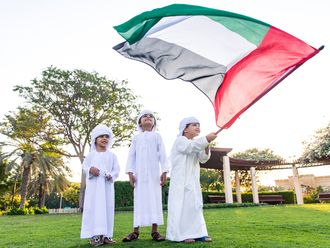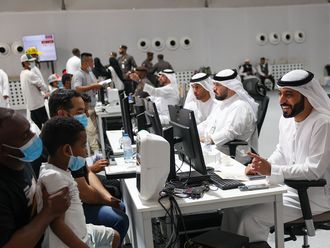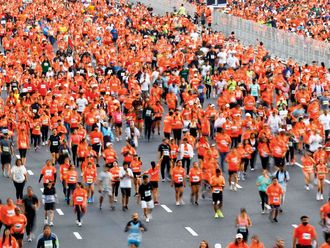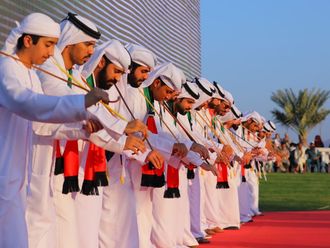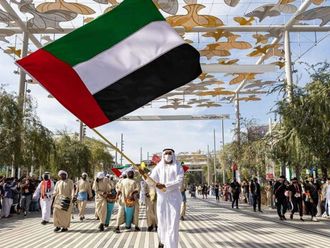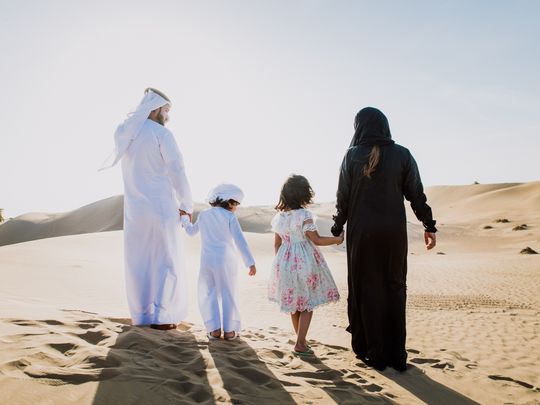
Abu Dhabi: An emirate-wide survey in Abu Dhabi has found that 80 per cent of residents believe the coronavirus crisis has strengthened family bonds, and has allowed them to spend more time with their children.
The crisis has also caused 87 per cent of survey respondents to change their lifestyles, especially in terms of an avoidance of public places, the survey discovered.
The poll, which focused on life during the coronavirus, was conducted by the Department of Community Development (DCD). The DCD supervises community wellness in the emirate, and highlights the main challenges faced by the population, and it developed the survey to identify common patterns and escalate challenges to decision-makers.
A total of 50,000 residents responded to the survey, which was launched in April and continued for two months. Participants were 52.3 per cent female and 47.7 per cent male.
“We analysed inputs and studied the effects of the pandemic on family and society, and raised appropriate solutions with competent authorities in the emirate. Based on the responses, there was also an actual impact on various stages of the crisis through temporary initiatives and solutions,” said Dr Mona Al Bahar, advisor to the DCD chairman.
According to the DCD, the survey helped direct a total of 60 initiatives provided by 10 government entities, including the Authority of Social Contribution – Ma’an, the Abu Dhabi Social Support Authority, the Abu Dhabi Childhood Authority and the Zayed House for Islamic Culture.
In terms of government actions during the outbreak, 94 per cent of those who responded said they were confident about the ability of authorities to deal with the crisis. 95 per cent of respondents also said they were knowledgeable about the preventive measures implemented, and 90.5 per cent were certain that the government was taking matters seriously and enforcing effective actions.
Most residents also appeared confident in the health sector’s ability to deal with the pandemic. This was evident when 89 per cent positive of participants said that they believed government health institutions were fully equipped to deal with the outbreak, and when 91 per cent stated that they felt the government had taken pre-emptive measures against the coronavirus.
Residents were also careful to obtain news from reliable, official sources, as indicated by 89.5 per cent of respondents.
“We will continue our extensive efforts, and have announced the second survey to evaluate life after coronavirus restrictions. We are confident that the future is better, as indicators reflect that we have a stable situation compared to the various countries of the world,” Dr Al Bahar said.
The authority has also recently introduced a new volunteering policy to allow members of the community to contribute their efforts to social initiatives.


